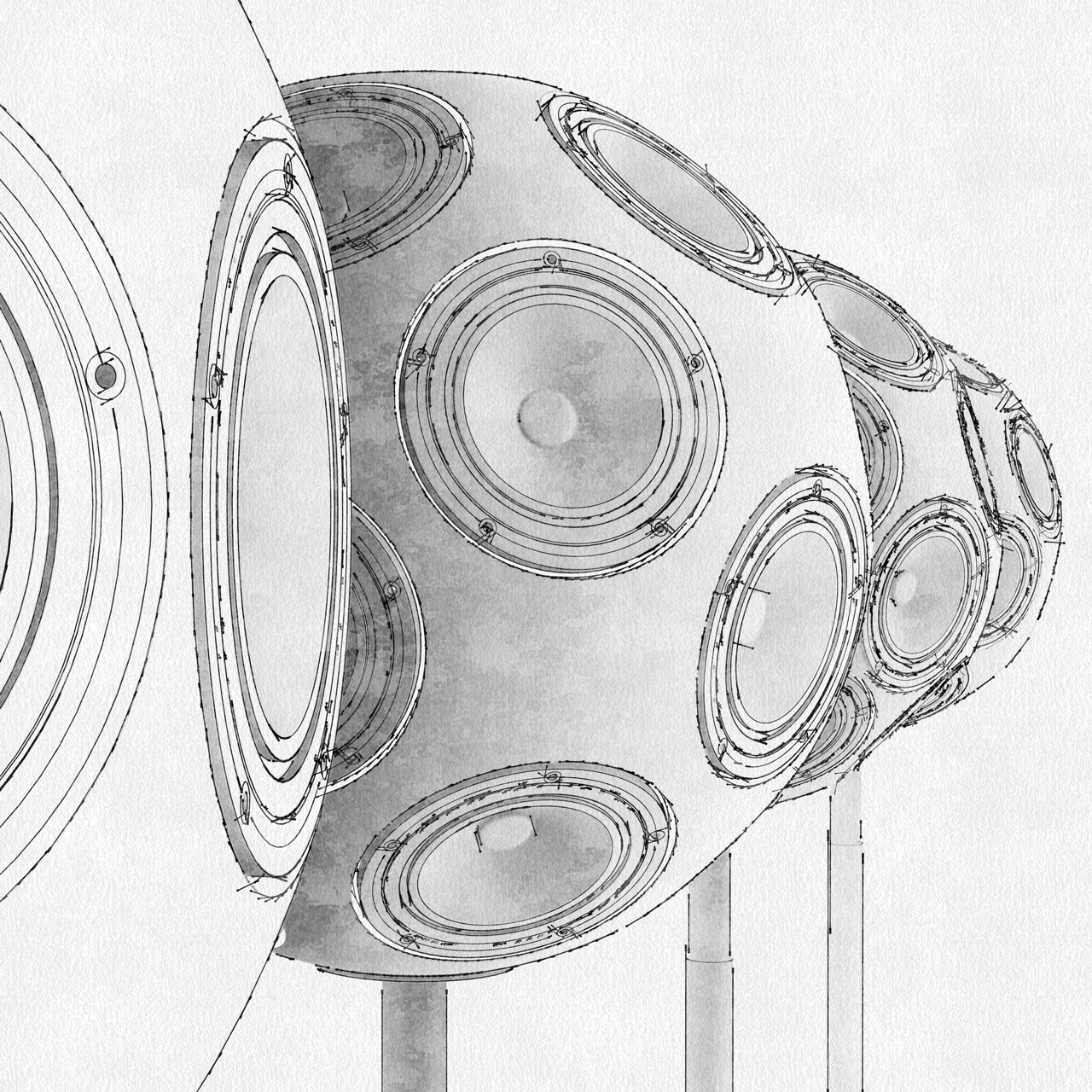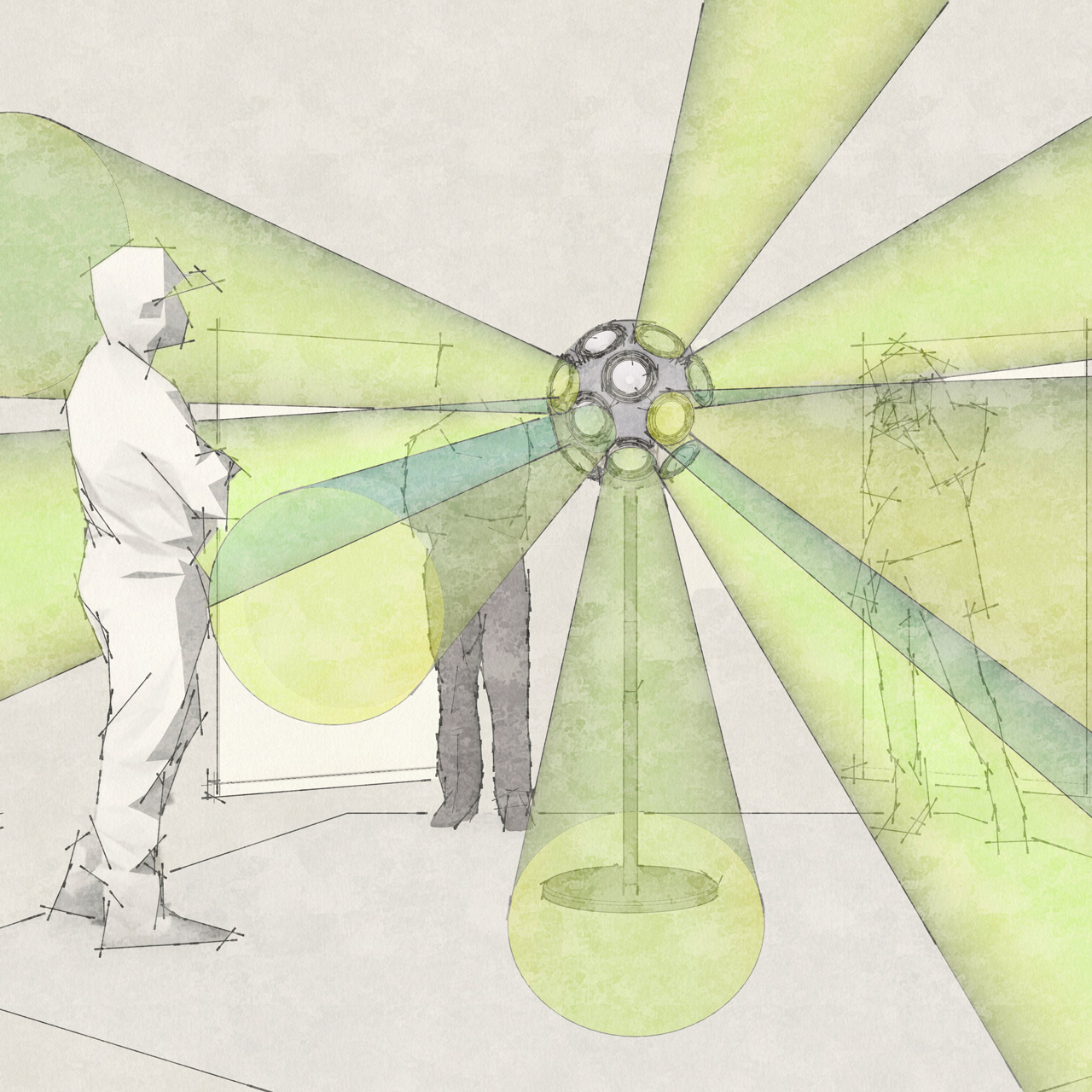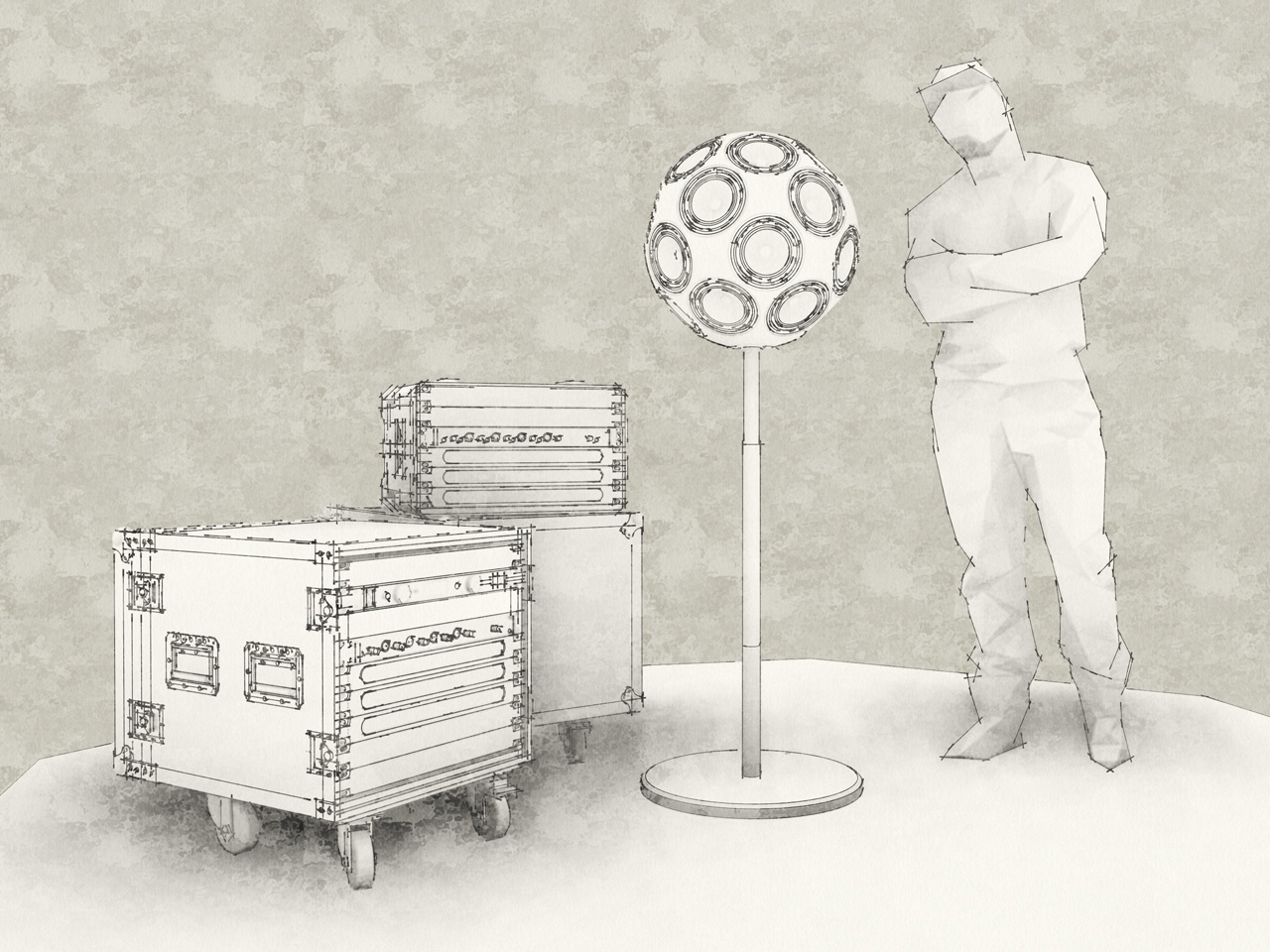We believe the future of sound is spatial.
That’s why we envision, design, and build spatial sound instruments, systems, and installations — empowering artists, researchers, and institutions with access to technology and expertise for immersive sonic experiences. Welcome to Slovox, the R&D Lab for spatial sound.
Slovox for practitioners
Making a living in sound and music is tough — unless you’re ready to go beyond the traditional. Spatial sound is still wide open for those willing to experiment.
Spatial sound used to be expensive and inaccessible. It's time to change that. Slovox exists to empower sound artists with know-how and technology to explore immersive sound formats, and build fulfilling, sustainable careers.
Slovox for institutions
Convincing immersive sound doesn’t just come from an impressive spend. We know that wonderful things happen when artistic intent meets a willingness to experiment and rethink what’s possible, all while staying resourceful.
Slovox combines the artistic know-how with technology for art spaces, museums, academic programs, and research labs to advance spatial audio and invite new ways of listening.
We build our own products and welcome collaborations, to enable dialogue and participation. We believe technology should bring people together and foster social listening, never isolate or overwhelm.
We design tools for listening
We build objects and systems that invite curiosity, dialogue, and new ways of experiencing sound together. Each project is a step towards making spatial audio more accessible, adaptable, and socially engaging.

Singing Watermelons
Our flagship development, a family of parametrically-designed spherical loudspeakers — omnidirectional, multichannel, ambisonic, or beamforming.
Scatter
A modular multi-channel System. As a spin-off from Singing Watermelons, it re-applies the same design principles to a conventional outside-in sound system, bringing spatial audio to a wider range of spaces and scenarios.


Juicebox
Our compact, portable multi-channel interface, DA conversion and amp units power both systems delivering robust performance and exceptional value.
The Last Ear
Slovox is the R&D lab of The Last Ear, a platform dedicated to restoring the art of listening in an age of engineered distraction.
Our work is grounded in attentive sovereignty, creative collaboration, and the belief that listening is a radical, essential act for the future. Every project is an invitation to advance the art and science of listening — not just musically, but humanly.



